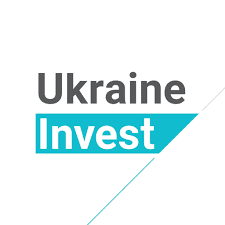
Executive Vice-President of the European Commission Valdis Dombrovskis says the decision to provide Ukraine with another financial assistance in the amount of EUR 1.2 billion will be signed on February 1. “We are stepping up our support for Ukraine both in the immediate and medium term. The European Commission is going to adopt a new emergency macro-financial assistance package of EUR 1.2 billion tomorrow,” he said at a joint briefing with Prime Minister Denis Shmyhal in Kyiv on Monday.
He said that in order for the European Commission to provide the first tranche of EUR 600 million in the near future, this decision must be passed through the European Parliament, after which a memorandum of understanding must be signed on the directions of financing these funds.
Dombrovskis said this support is related to the programs that Ukraine has with the IMF.

In 2021 MEGABANK increased its credit portfolio by UAH 881 mln.
As of January 1, 2022, the total credit portfolio of the bank is UAH 8,132 bn.
Within a year it increased by 881 million hryvnias, which is 509% more compared to 2020.
In particular, 961 million hryvnias were disbursed as loans to small and medium-sized businesses in 2021. The credit portfolio also increased in the microbusiness segment. Compared to 2020, the increase amounted to UAH 97 million (214%).
– According to the Strategy for 2021-2025, the bank financed primarily micro-businesses and SMEs. Among them are enterprises of the agricultural sector, trade and industry. And microbusiness financing is one of the priorities of our bank, which is successfully implemented, – said Olena Ponomarenko, Acting Chairman of the Management Board of MEGABANK JSC.
In addition to classical credit products, small and medium-sized businesses can get affordable short-term unsecured loans from MEGABANK in the form of a credit limit on a current account, loans for investment purposes, loans under government support programs related to the COVID-19 pandemic.
Also representatives of SMEs have access to the entire range of documentary operations, letters of credit, bills avalization, servicing of foreign economic contracts, and others.
Based on the results of 2021, the retail credit portfolio also showed an increase, which is 160% more than in 2020.

U.S. President Joe Biden intends to appoint Bridget Brink, who currently represents Washington in Slovakia, as the country’s ambassador to Ukraine, CNN said on Monday.
The appointment will take place when the Ukrainian side gives formal confirmation, the television channel said.
The United States has not had a permanent ambassador to Ukraine since 2019. At the moment, Kristina Kvien serves as Chargé d’Affaires at the U.S. Embassy in Kyiv.
Brink has been representing the United States in Slovakia since August 2019. She served as Deputy Assistant Secretary in the Bureau of European and Eurasian Affairs from 2015 to 2018. She also served as Deputy Chief of Mission at the U.S. Embassies in Uzbekistan (2014-2015) and Georgia (2011-2014).

The National Bank of Ukraine (NBU) estimates a potential reduction in revenue from the sale of export products subject to the EU I Carbon Border Adjustment Mechanism (CBAM) at the level of $100 million annually from 2026.
The estimates were given in the quarterly inflation report of the NBU.
The NBU said that Ukrainian exporters of carbon-intensive metallurgical products to the EU ($30-50 million per year) will suffer the lion’s share of the damage.
At the same time, the cumulative damage for exporters subject to CBAM is assessed as moderate.
The action of CBAM in the wording proposed by the European Commission will apply to the import of fertilizers, electricity, products of the cement industry and metallurgy (iron, steel, aluminum). These are, as noted in the EC, the sectors with the highest carbon dioxide emissions.
At the same time, the National Bank said that the income of Ukrainian companies may be reduced even more if the mechanism is extended to other sectors of the economy, indirect CO2 emissions are added, free emission quotas in the EU are rapidly eliminated and the transition period is reduced.
Such initiatives, as is known, are put forward by a number of members of the European Parliament. The law on the introduction of the mechanism can be adopted already in the middle of this year after parliamentary consultations.
To minimize the negative impact of CBAM, the NBU advises to focus on the development of a national emissions trading system (ETS), which, in turn, will allow the collected funds to be directed to eco-modernization.
The conclusions of the National Bank differ significantly from the estimates of the Kyiv School of Economics (KSE). KSE experts predict that the introduction of CBAM by the European Union could lead to an annual reduction in the income of Ukrainian companies up to EUR 396 million annually during 2026-2030. Thus, Ukraine’s GDP will decrease by 0.08% per year.

National Nuclear Generating Company Energoatom, taking into account the political situation, has prepared an order to harden the protection of its nuclear facilities and their infrastructure, Head of Energoatom Petro Kotin has said.
“We are introducing a special order to harden security at all our nuclear facilities and their infrastructure. It will, of course, provide for additional steps for the physical protection of the facilities. Of course, we will harden these measures. And, if necessary, we will allocate additional funding,” Kotin told Interfax-Ukraine during a visit to the Central Spent Nuclear Fuel Storage Facility (CSFSF).
According to him, now law enforcement agencies are working out all the necessary steps to improve safety at the nuclear power plant.
“These are organizational steps. As for additional funding, issues are resolved within the framework of security protocols that are signed with the National Guard and other relevant bodies, in particular, the SBU. Now, this work is being carried out at all nuclear power plants,” Kotin said.
Concerning the CSFSF, the head of Energoatom said that all the required protection steps are also being taken on it.
“This is a nuclear facility, and therefore it is also very vulnerable from the point of view of a terrorist attack. It is only 14 km from the border with Belarus. All necessary steps are being taken to protect it physically, there are many of them, they are sufficient. You heard that the representative of the National Guard from the unit that will guard it said that security will be ensured,” Kotin said.

The Investment Promotion Office (UkraineInvest) has signed a memorandum of understanding with Clear Energy Group LLC (Kyiv), operating in the field of bioenergy, on the implementation of a project for construction of a waste management complex at the site of the Dalnytski Quarries landfill (Odesa) with an investment of about EUR 30 million over three years.
“UkraineInvest provides organizational and advisory support to the investor in the preparation and implementation of the project, in accordance with the law on ‘investment nannies,'” the Office said in a statement.
According to a statement on the Clear Energy Group website, the project provides for creation of a sorting complex for up to 400,000 tonnes of municipal solid waste per year and a combined heat and power plant (CHPP) using RDF fuel with a capacity of 20 MW, generating 74,000 Gcal of thermal energy per year.
It is noted that the sorting line will reduce the amount of waste for disposal in the region by at least 30%, and the generated energy will substitute for 10.5 million cubic meters of natural gas during the heating season.
The report specifies that the thermal energy obtained by burning waste will be supplied at a lower tariff than in the case of burning natural gas.
The Office’s website notes that the project implementation involves creation of 85 new jobs.
Clear Energy Group says on its website that it is the leader in terms of generating electricity from biogas. Its “green” portfolio for production of electricity from biomass and biogas amounted to 21 MW by the end of 2020, and annual electricity production exceeds 91 million kWh. In addition, the portfolio of Clear Energy Group, according to the website, includes 15 projects for the degassing of solid waste landfills throughout the country, the key of which is Odesa-based Dalnytski Quarries landfill.
The company’s plans for the coming years include the launch of 250 MW of “green” capacities throughout Ukraine.